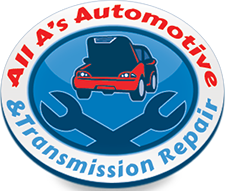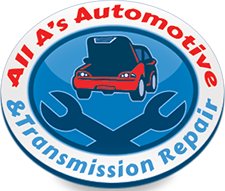Car A/C System: What To Do When It’s Not Working

 I’m not a fan of driving around in hot weather. Sitting on burning hot seats and feeling stifling air blowing in my face from the windows are not items on my bucket list. To avoid these unpleasant experiences, I schedule my car A/C system maintenance service every year. A qualified service technician will address foul odors, no airflow issues, and leaking refrigerant within my car A/C system, plus perform any necessary HVAC repairs.
I’m not a fan of driving around in hot weather. Sitting on burning hot seats and feeling stifling air blowing in my face from the windows are not items on my bucket list. To avoid these unpleasant experiences, I schedule my car A/C system maintenance service every year. A qualified service technician will address foul odors, no airflow issues, and leaking refrigerant within my car A/C system, plus perform any necessary HVAC repairs.
Car A/C System – Common Symptoms
Warm Air From The Vents
If the air from your car A/C feels warm or cool but not cold, the problem could be a clogged filter, a malfunctioning ventilation fan, or another faulty A/C system component. An HVAC System inspection is likely required to resolve the warm air issue.
No Airflow
When you experience little to no airflow when you turn on your vehicle A/C, something is faulty within the HVAC system. Likely components restricting airflow can include:
- Loose hose connections
- Worn seals create compression loss.
- Stuck or damaged ventilation fans
- Mold accumulation in the evaporator core or cabin air filter
Foul Odors
No one wants their vehicle to smell musty or dusty. If foul odors come from your vents, your A/C system may contain mold and mildew spores.
- The A/C evaporator naturally collects moisture, which can develop mold. Turn off the A/C and drive with just the fan running on high to dry out the evaporator.
- A dirty cabin air filter may also leave the air smelling foul. Try replacing your cabin air filter to restore the fresh airflow.
Possible Problems & Solutions
Having your car’s air conditioning go out suddenly can ruin your whole day. Let’s look at some of the most common problems & solutions of an inoperable car A/C system.
Leaking Refrigerant
Keeping your vehicle’s A/C working is important for driver comfort, especially as the weather continues to warm up. The refrigerant is a special fluid in the A/C system and plays a vital role in this process. A common myth about car A/C systems is that if the refrigerant is low, you just need to add more (a process called recharging). However, the sealed A/C system would only have low refrigerant if there is a leak. If you suspect low refrigerant, schedule an A/C service with a certified auto service center. Where to look for refrigerant leaks within the HVAC system:
- Worn seals & gaskets
- Cracked or damaged hoses
- Loose or broken connectors
Dirty Cabin Air Filter
The vehicle’s cabin air filter removes harmful pollutants, pollen, and dust from the air you breathe inside the car. This filter is sometimes located behind the glovebox and cleans the air through the vehicle’s HVAC system. Most auto manufacturers recommend changing this filter every 15,000 to 30,000 miles. There are a few obvious signs the cabin air filter requires replacement. These include:
- Reduced airflow from the vents when the A/C is running
- Excessive or loud whirring noise when the A/C is on high
- A musky or dirty odor fills the interior when the A/C is on
A/C Evaporator Core
The A/C evaporator acts like a frozen box with holes in it. It allows hot air to flow through the core, rapidly cooling it and blowing it back into the cabin. The most common cause of an evaporator core leak is age and wear.
A/C Orifice Tube or Expansion Valve
The A/C orifice tube (expansion valve) filters and regulates refrigerant flow through your air conditioning system. Depending on your vehicle’s make and model, you can have either an orifice tube or an expansion valve. Contamination is the leading cause of failure. The expansion device could be the issue if the system pressures are too high or too low.
A/C Condenser
The A/C condenser looks like a small radiator and works with the radiator fan(s). Air flowing across the A/C condenser tubes cools the hot (gaseous) refrigerant that has absorbed heat from inside the vehicle, turning the refrigerant back to a liquid state. It will continuously perform this function as long as the A/C is running. Restricted flow of refrigerant can lead to poor cooling. Common problems include:
- Refrigerant leaks.
- Clogged AC Compressor or AC Accumulator/Drier
Compressor
The A/C compressor is a rotating pump that circulates refrigerant throughout the vehicle’s A/C system. Common problems include:
- Leaks in one or more seals
- Particle contamination inside the compressor
- Low refrigerant
Compression Clutch
The compression (or engagement) clutch can fail, rendering the compressor inoperative. A blown fuse or other electrical component can cause a failed compression clutch.
Ventilation Fans
Check that the cooling fans on the condenser or radiator are moving freely when the A/C is on. Look for any restrictions, such as leaves, bugs, or debris preventing air from passing over the condenser.
Car A/C Maintenance & Repairs
All A’s Automotive is your local family-owned independent service center and dealer alternative. You can always expect outstanding service and a fair price. Our technicians are ready to diagnose the cause of foul odors, no airflow, and leaking refigerant from your vehicle’s A/C system.
Schedule Your Car A/C System Service
Call (989) 631-4672 or visit us online to schedule your HVAC repairs.
Posted in: Auto A/C
Leave a Comment (0) ↓
